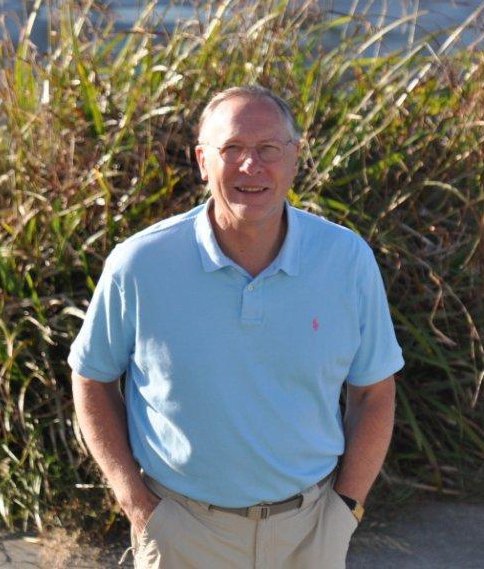Longtime Executive Director Steve Crow Retires from the Northwest Power and Conservation Council
- August 14, 2020

Steve Crow retires this month after 25 years as executive director of the Northwest Power and Conservation Council. Steve came to the Council after a long tenure working for the late Oregon Congressman Wendell Wyatt and the late Oregon Senator Mark O. Hatfield.
During his years in the Senate, Steve developed an expertise in natural resource issues, first as counsel to the Energy and Natural Resources Committee and later as the staff director for the Senate Appropriations Subcommittee on Energy and Water Development. His Appropriations Committee assignment provided the opportunity to become intimately familiar with the operations of several federal agencies with large footprints in the Pacific Northwest, including the Bonneville Power Administration, the U.S. Army Corps of Engineers, and the Bureau of Reclamation.
One of Steve’s most notable achievements while working in the Senate was his advocacy for the Corps of Engineers to embark on a program to retrofit its dams on the Lower Columbia and Snake rivers to protect migrating juvenile salmon and steelhead. Working with subcommittee members Hatfield and Jim McClure from Idaho, Crow pushed the Corps to initiate its Columbia River Fish Mitigation Program, which has funded the construction of fish bypass systems and research at the mainstem dams for more than three decades.
Crow’s expertise and interest in Columbia River salmon and steelhead, and his knowledge of the pertinent federal agencies in the region, led to his hiring at the Council in 1988 as the director of government affairs. He was later promoted to executive director in 1995.
His tenure as executive director began during a turbulent time at the Council as the political balance among the four Northwest states was changing. Throughout it all, Steve provided the calm and steady leadership that made it possible for the Council and its partners to navigate difficult debates and negotiate constructive solutions.
The region faced two major challenges in the mid-1990s. On the energy front, when the nation’s electricity industry was beginning to move from a regulated electricity system to competitive markets, one question loomed large in the Northwest: Would the Bonneville Power Administration—the agency that markets the power generated at federal dams on the Columbia River—remain viable in a deregulated and competitive environment, given its high fixed costs and obligations to fish and wildlife? To answer that question, the Northwest governors convened, and the Council staffed, a Comprehensive Review of the Northwest Energy System that involved regional leaders from the utility industry, Northwest states and tribes, navigation and irrigation interests, and public interest organizations. Among the recommendations from that process was a key proposal for the BPA to sell power by subscription through long-term contracts and to institute a system of tiered rates to better reflect the cost of new energy resources.
On the fish and wildlife front, a seminal report on Pacific Northwest salmon by the National Research Council outlined the need for a science-based approach to salmon recovery and stressed the importance of genetic variability, the need to protect fish habitat, and manage fishing. This report led to legislation amending the Northwest Power Act that directed the Council to create an Independent Scientific Review Panel and consider its findings when reviewing proposed fish and wildlife projects.
In meeting the imperative to evolve, Steve held an abiding commitment to the Northwest Power Act’s vision of regional consensus as the surest path to effective and durable policies. He believed that the Council’s unique strength lay in its ability to bring different perspectives together and find common ground. This was also a hallmark of his approach as a manager. While the work may be quite different from department to department, Steve fostered a culture of respect and civility by valuing everyone’s contribution to the Council’s operation.
Steve grew up in Portland and attended Sunset High School, playing on the baseball team that would go on to win the state championship. At Oregon State University, he played second base on the varsity team, nearly following in the footsteps of his grandfather, who was a professional ball player. After graduating from OSU, Steve earned his law degree at the University of Oregon. In addition to his love of baseball, Steve is an avid fly fisherman who will no doubt spend more time on the Deschutes River and other favorite Northwest streams.
For over 30 years, Steve has been the quiet strength behind the Northwest Power and Conservation Council’s work. His calm, but firm, management style blended well with the eight full-time Council members who came from different states with different constituencies, priorities, and politics. His dedication and commitment to fulfilling the Council’s mission of ensuring an affordable, reliable, and clean energy system, while maintaining abundant populations of fish and wildlife, is a legacy we will work hard to continue.



